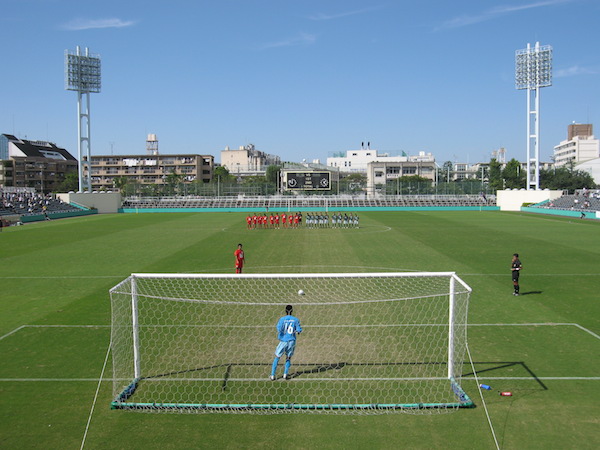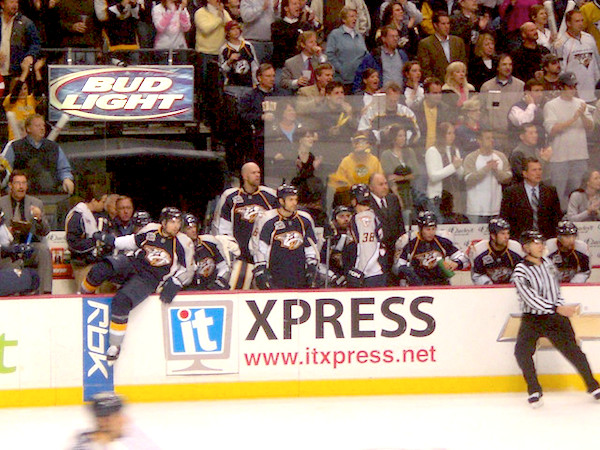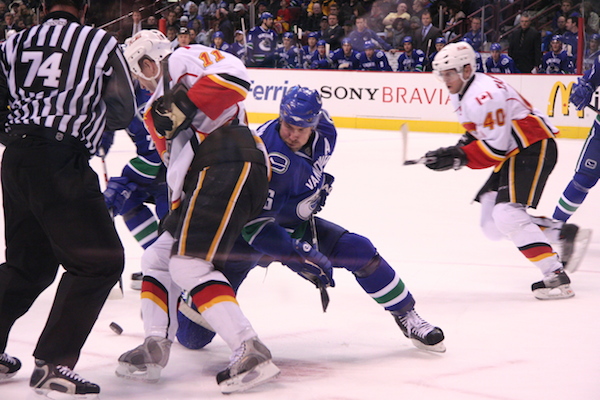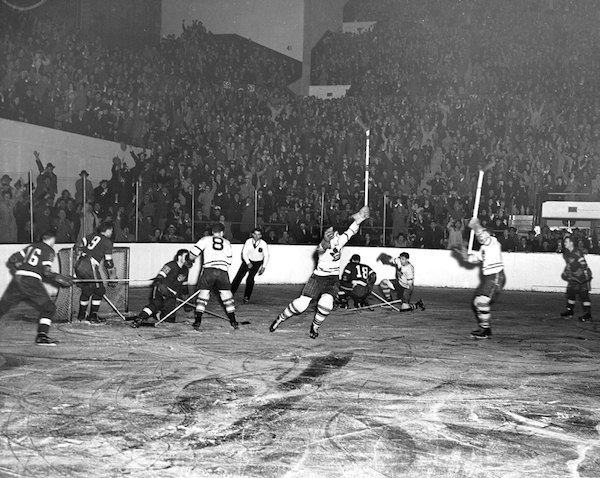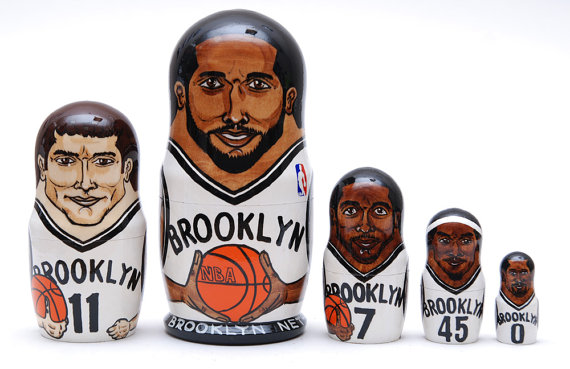 Cue Cards is a series designed to assist with the common small talk about high-profile recent sporting events that is so omnipresent in the workplace, the bar, and other social settings.
Cue Cards is a series designed to assist with the common small talk about high-profile recent sporting events that is so omnipresent in the workplace, the bar, and other social settings.
Sport: Hockey
Teams: Chicago Blackhawks vs. Boston Bruins
When: Monday night, 6-24-13
Context: Game 6 of the Stanley Cup Finals. The Chicago Blackhawks led the seven game series 3-2.
Result: The Chicago Blackhawks win 3-2 and win the Stanley Cup
Sports Fans will be Talking About:
- Absolute heartbreak for the Boston Bruins. After a late goal in the third period the Bruins were up by a goal with less than two minutes left. The Blackhawks pulled their goalie (a desperation move) and scored to tie the game. This had to have had everyone in the arena thinking that the game would go to overtime like so many of the games in this series did. The Blackhawks had other ideas and scored again before the end of regulation time to win the game and the series.
- The end for Jaromir Jagr? Jagr is 41 and played his first year in the NHL in 1990. He won the championship with the Pittsburgh Penguins in 1991 and 1992 and has not won since. Although he played remarkably well for most of the season and playoffs, he got banged up pretty good in this game, and there was a shot of him after the game mourning the loss that had an air of finality and deep sadness.
- This series was about as good as the NHL could wish for. Two original six teams from big U.S. markets playing incredibly well against each other. This season, which looked to be at risk of not happening at all after the owners locked out the players, ended on a high note for the sport.
- Of course one of the consequences of the labor problems is that the season ended unseasonably late in the year. It was 95 degrees in Boston today and the ice quality was very poor throughout, particularly at the end of the game when a lot of the important action happened.
What’s Next: Probably a lot of beer for the Chicago team. And the city of Chicago. And I imagine many of the Bruins fans in my life too.
Sport: Tennis
Players: Rafael Nadal and Steve Darcis
When: Monday, 6-24-13
Context: The first round of any tennis tournament is where one expects the expected. It is very rare for anything head-line worthy to happen.
Result: Steve Darcis beat Rafael Nadal in three straight sets, 7-6 (4), 7-6 (8), 6-4
Sports Fans will be Talking About:
- The surface — we just did a post on this today about how Nadal’s style of play leaves him open at this stage in his career to being upset on grass.
- Who is this Steve Darcis guy anyway? No really, no one will know anything about him except that he is Belgian and that no one knows anything about him.
- Nadal’s knee which looked like it was bothering him. Tendonitis in his knees has forced him to miss lots of time in the past few years and it feels more like this is a permanent disability than something which he will one day look back on as a bump in the road. Every loss and every injury for Nadal is therefore analysed as though it may be his last.


